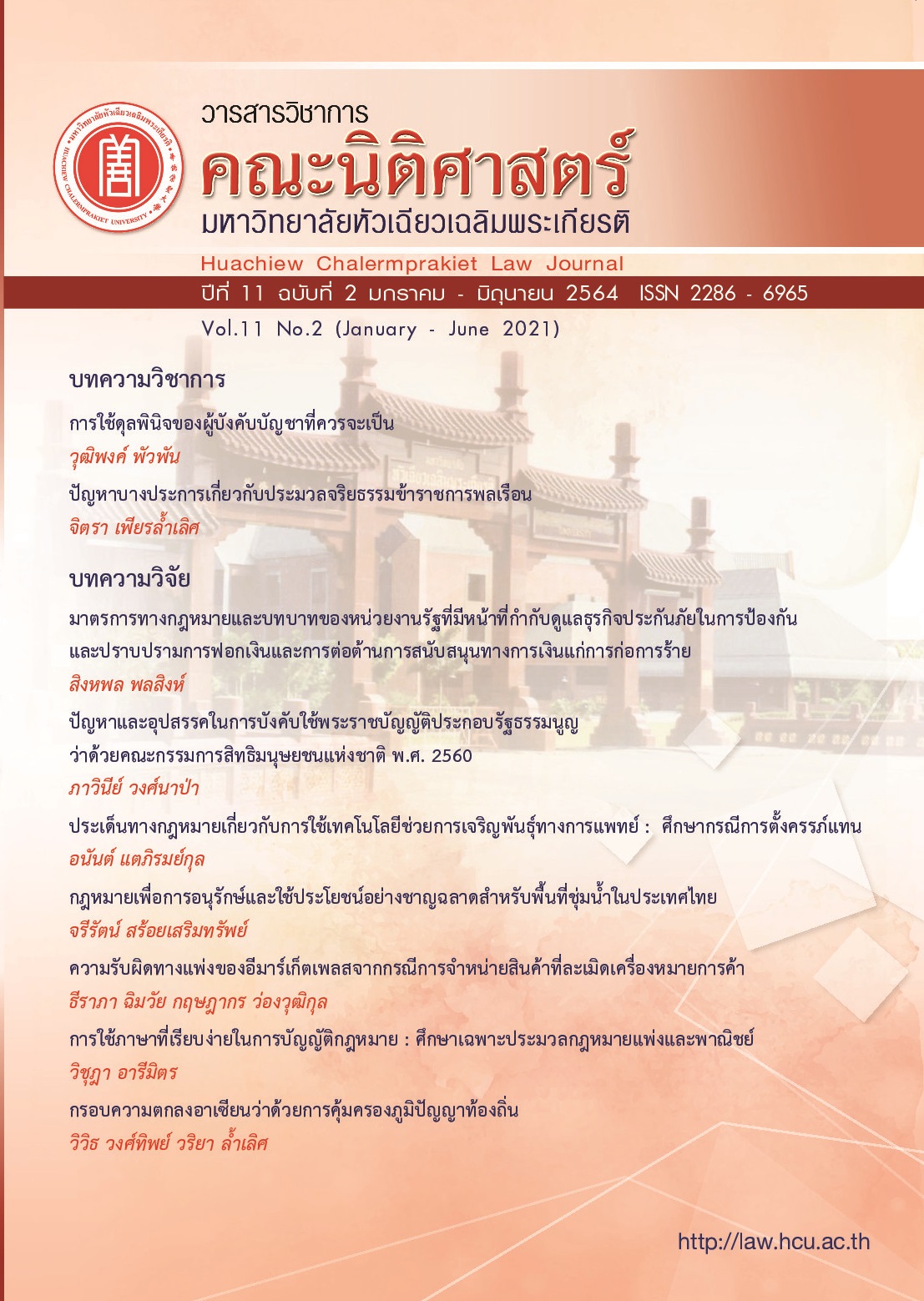Civil Liability of E-Marketplace in the Case of Trademark Infringement
Abstract
Nowadays, counterfeit goods have been widely sold on E-marketplace which cause serious damage to trademark holders. In this circumstance, E-marketplaces do not directly infringe trademark but they merely allow sellers to trade goods on their online places which has been described as secondary infringement. Trademark holders may seek remedy over a trademark infringement and the most important mechanism is to sue E-marketplace for civil lawsuit for the wrongful act. However, under Thai Tort law does not provide ways in which trademark holders may claim damages from such infringement. So far, there have been no judicial decisions in this regard since no cases have ever been brought before any Thai courts. Consequently, there is no jurisprudence which can be used as stare decisis to make the ruling. If there are no clear approach to address this problem and such a situation persisted, online businesses will face a serious problem as well as the country's reputation and image.
This article is aimed at portraying the problem associated with the selling of counterfeit goods on E-marketplaces as well as general characteristics of E-marketplaces, legal theories relevant to the secondary liability of E-marketplace. In addition, the thesis studied legal principles and cases which are relevant to the infringement of goods on E-marketplaces in Thailand and foreign countries with a view to analysing Thai laws so as to find criteria of liability of
E-marketplaces which are suitable for Thai legal system.
The research found that there is a legal basis, either in theory or in jurisprudence rendered by courts, for holding E-marketplaces liable for any damage and pay compensation as secondary infringer which may differ from country to country. In the United States of America, the courts have developed legal principles which is so called contributory liability. For the German and French courts, they apply civil code by considering whether E-marketplace has acted intentionally or negligently. In China, the solution was to enact new laws. The most appropriate way for Thailand would be the application of Article 420 of the Civil and Commercial Code which is general principle for holding E-marketplaces liable for any damage in the same way as German and French courts have done. This is because Thailand is the civil law country so that the existing provisions have to be applied and relevant circumstances need to be considered.
Downloads
Published
How to Cite
Issue
Section
License
บทความหรือข้อความคิดเห็นใด ๆ ที่ปรากฏในวารสารฉบับนี้เป็นวรรณกรรมของผู้เขียนโดยเฉพาะ คณะนิติศาสตร์มหาวิทยาลัยหัวเฉียวเฉลิมพระเกียรติ และกองบรรณาธิการไม่มีส่วนรับผิดชอบหรือไม่จำเป็นต้องเห็นด้วยกับข้อคิดเห็นนั้น แต่ประการใด








